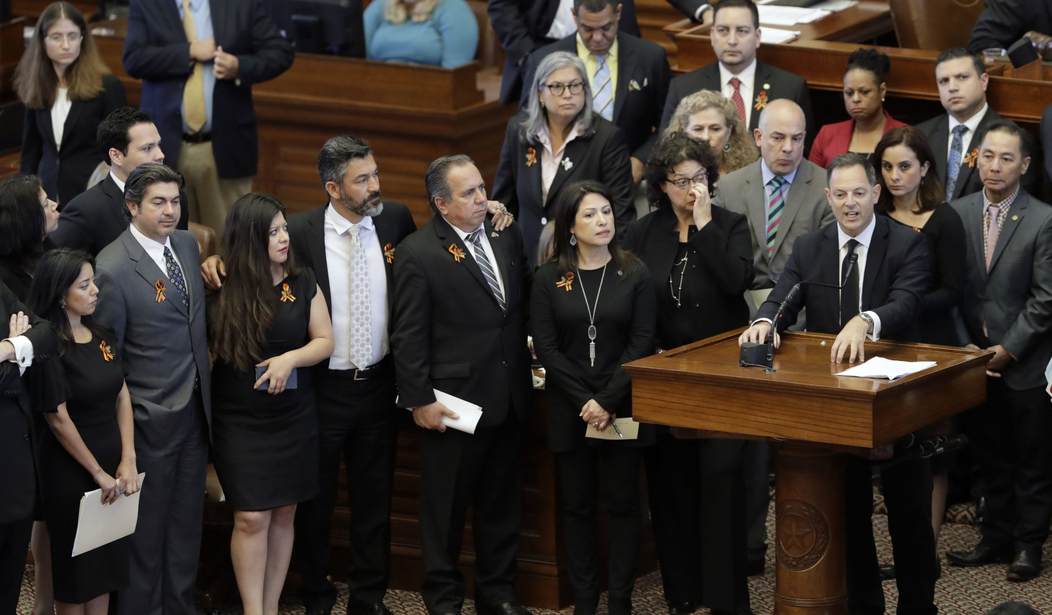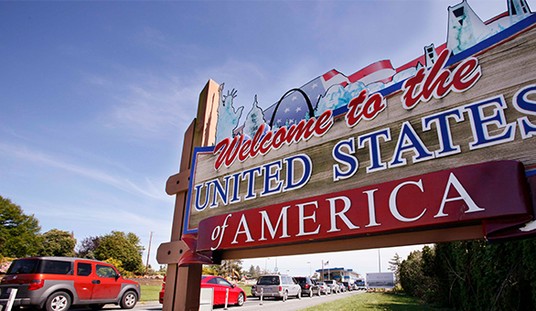Texas and Florida took the same path in April and early May on a journey to stop local officials from taking the law into their own hands by freezing out Immigration and Customs Enforcement and preventing their cops from asking for people’s green cards.
Texas just got there first.
The Florida House has approved anti-sanctuary city legislation that not only punishes cities by withholding state funding if they refuse to cooperate with ICE; HB 697 would also give the governor power to remove any elected official who violates the new law.
Also, any government official who fails to report violations of the law could also be removed from office. The legislation also protects whistleblowers who report violations.
“To essentially encourage illegal activity should be offensive to everyone,” GOP Rep. Jason Fischer said.
Opponents called the proposed Florida law offensive and unfair.
“When you have to vote on this bill, please remember I am your colleague,” Rep. Daisy Baez (D) said during the House debate. “I am an immigrant and when you talk about ‘those people,’ you’re talking about me.”
Baez doesn’t have anything to worry about this year. Even though the House approved HB 697 on April 28, the Miami Herald reported companion legislation has stalled.
In Texas, Rep. Gene Wu, who is also an immigrant, voiced a concern similar to Baez’s during the House debate over legislation to penalize sanctuary cities in the Lone Star State.
He compared SB 4 to the internment of Japanese-Americans at the outbreak of World War II.
“Those are laws that were created out of fear,” Wu said. “Those are laws that were created out of hatred and misunderstanding.”
The Texas Legislature on May 3 approved legislation that would punish cities that stop local police from enforcing federal immigration laws or asking people about their immigration status.
Senate Bill 4 goes to Gov. Greg Abbott’s desk. Even though San Antonio Police Chief William McManus told KSAT his advice to Abbott was “listen to your police chiefs, don’t sign this bill,” the Republican is sure to sign it.
As soon as the legislature approved it, Abbott tweeted, “I’m getting my signing pen warmed up.”
Abbott listed approval of the legislation cracking down on sanctuary cities and the municipal officials behind them as one of the top priorities of his administration.
Abbott described stopping sanctuary cities and making sure police were asking for immigration papers as a “legislative emergency” in his January State of the State address.
“Some law enforcement officials in Texas are openly refusing to enforce existing law. That is unacceptable,” Abbott said. “We must insist our laws be followed.”
A Houston Chronicle editorial criticized Senate Bill 4 by writing that Gov. Abbott had Texas “once again following the lead of states in thrall to tea-party populists with little sense of the greater good.”
“As local immigration attorney Charles Foster points out, SB 4 is essentially ‘show me your papers’ or ‘guilty of driving while brown,’ legislation similar to Arizona’s late and unlamented law that the U.S. Supreme Court gutted in 2012,” the Chronicle editorial concluded.
However, Texas GOP chairman Tom Mechler released a statement in support of the legislation in which he criticized Democrats who “did not believe in following federal law and keeping dangerous criminals off the street.”
“This bill will prevent undocumented criminals who have been legally detained from going back on the streets,” Mechler said, “and becoming a repeat offender.”
Senate Bill 4 will go into effect in Texas on Sept. 1. But that may just be the date when the real battle begins: Opponents are promising to challenge it in court.
“Somebody will file something quickly. They always do,” Luis Vera Jr., the national general counsel for the League of United Latin American Citizens, told KSAT.
“The state of Texas always says it’s unchallengeable, that they’ve won, that they’ve done everything right,” Vera said. “So far, I haven’t found a federal court that agrees with the state of Texas in my 25 years of doing this.”
While the legal debate is played out, Texas police are going to have to learn how to deal with the new law.
Chief McManus said it would take up to a year for his 2,400 officers to become well-versed enough in federal immigration law to help enforce it. And McManus said he is not sure who will handle the training.
Then there’s the challenge of a police officer deciding when to ask someone for their papers.
McManus said it would come down to three factors: “your look, your accent and your command of the language.”
And that, McManus is afraid, will mean more money spent in court to defend cities in Texas against racial profiling charges.
Vera said he could see that happening, too.
“This is aimed at Latinos, Mexican-Americans. It’s not aimed at anybody else,” Vera said.









Join the conversation as a VIP Member